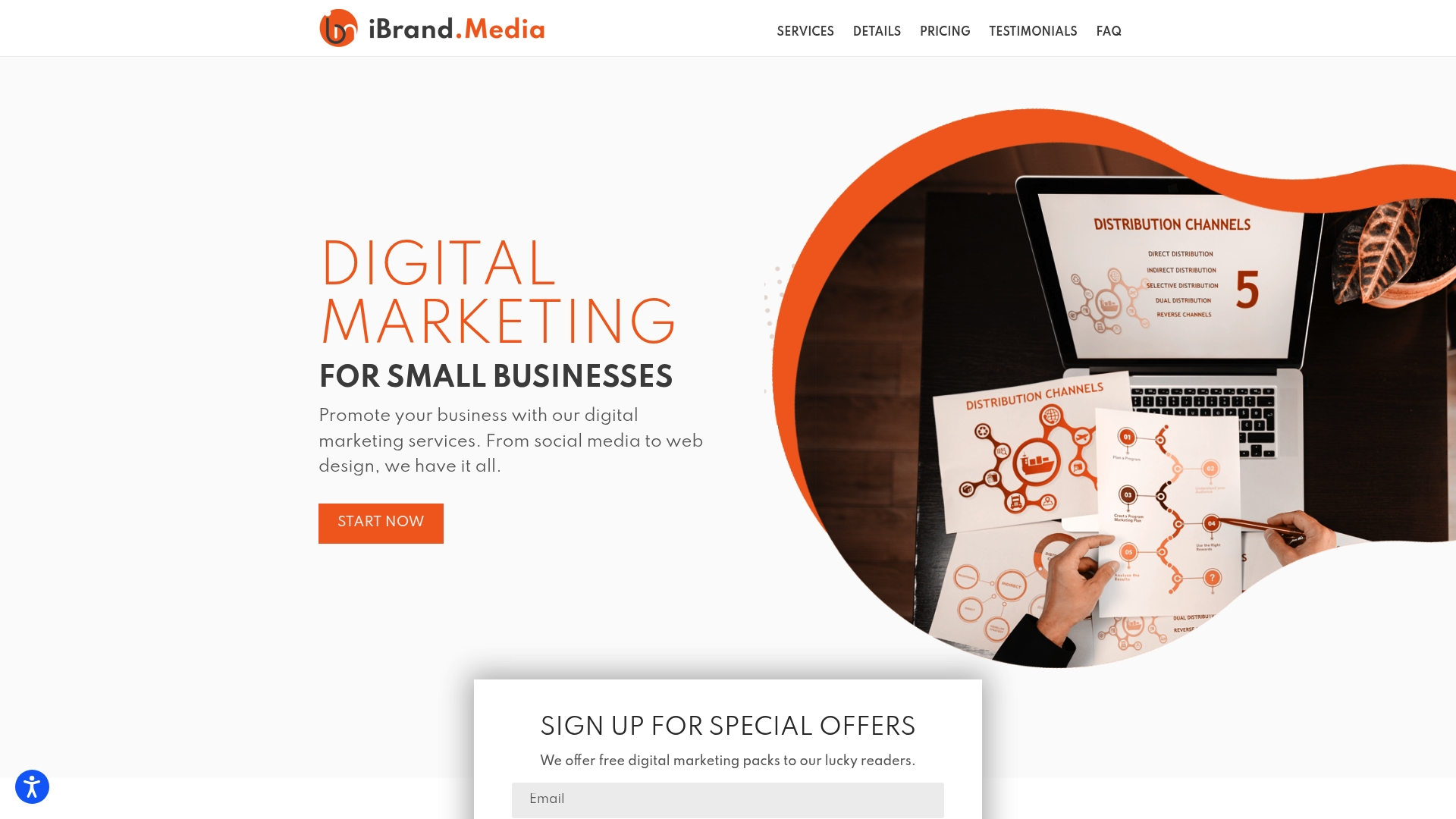Over eighty percent of marketers say measuring the right digital metrics is the difference between growth and missed goals. For small business owners, knowing what to track can make or break an online strategy. Focusing on meaningful numbers shows if your marketing creates real value like sales and loyal customers, not just empty clicks. Get clear on which measurements truly reflect your progress so every digital effort counts toward business success.
Table of Contents
- Defining Digital Marketing Success Metrics
- Types Of Marketing Tracking Tools Explained
- How Conversion Tracking And Analytics Work
- Measuring ROI And Campaign Effectiveness
- Common Tracking Pitfalls And How To Avoid Them
Key Takeaways
| Point | Details |
|---|---|
| Understanding Metrics is Essential | Selecting the right digital marketing success metrics, such as conversion rates and customer lifetime value, aligns your strategies with business goals. |
| Utilizing the Right Tools | Employing diverse marketing tracking tools, including web analytics and conversion tracking, can provide deeper insights into customer behavior and campaign effectiveness. |
| Avoiding Common Pitfalls | Small businesses must be aware of tracking pitfalls like data contamination and misaligned attribution to ensure accurate performance measurement. |
| Transforming Data into Actionable Insights | The ultimate goal of measuring ROI is to convert digital interactions into meaningful strategies that drive business growth and enhance customer understanding. |
Defining Digital Marketing Success Metrics
Digital marketing success isn’t about guesswork. It’s about understanding precise performance indicators that reveal how your online strategies are truly performing. According to research from SpringerLink, digital marketing success metrics encompass various critical indicators that assess the effectiveness of online campaigns, including customer engagement, conversion rates, and return on investment.
These metrics go far beyond simple vanity numbers. Meaningful metrics help small business owners understand the real impact of their digital efforts. arXiv highlights that crucial success metrics include:
- Clicks: Direct interactions showing user interest
- Impressions: Total number of times content is displayed
- Session Generation: Measuring how effectively marketing drives website visits
Successful digital marketing tracking requires a holistic approach. Small businesses need to look beyond surface-level data and dive deeper into metrics that demonstrate genuine business growth. This means understanding not just how many people saw your content, but how that content translates into tangible results like leads, sales, and customer retention.
Here’s a summary of common digital marketing success metrics and what they reveal:
| Metric | What It Measures | Why It Matters |
|---|---|---|
| Clicks | User interactions | Indicates interest and intent |
| Impressions | Content visibility | Measures potential reach |
| Session Generation | Website visits | Reflects marketing traffic volume |
| Conversion Rate | Visitor actions | Shows campaign effectiveness |
| Customer Lifetime Value | Total revenue per customer | Assesses long-term impact |
| Return on Ad Spend (ROAS) | Revenue per dollar spent | Evaluates profitability |
The key is selecting metrics that align directly with your specific business goals. Whether you’re a local service provider, an online retailer, or a professional service, understanding why track marketing performance becomes crucial to making informed strategic decisions that drive real business outcomes.
Types Of Marketing Tracking Tools Explained
Navigating the world of digital marketing tracking requires understanding the right tools for your business. Wikipedia reveals that tag management systems are essential for streamlining digital marketing data collection and website performance, making them a critical first step for small businesses looking to optimize their online strategies.
Several key types of marketing tracking tools can help businesses gain deeper insights:
- Web Analytics Tools: Track website visitor behavior, traffic sources, and user engagement
- Social Media Analytics Platforms: Monitor performance across different social channels
- Email Marketing Trackers: Measure open rates, click-through rates, and campaign effectiveness
- Conversion Tracking Tools: Identify how users interact with your website and complete desired actions
Data management platforms play a crucial role in this ecosystem. According to Wikipedia, these platforms collect and analyze large datasets from various sources, enabling businesses to identify audience segments and target users effectively in online advertising campaigns. This means small business owners can move beyond guesswork and make data-driven decisions.
While choosing tracking tools, consider your specific business needs. Choosing marketing channels becomes easier when you have the right tracking mechanisms in place. The goal isn’t just collecting data, but transforming that data into actionable insights that drive business growth and help you understand your customers better.

How Conversion Tracking And Analytics Work
Conversion tracking transforms raw digital interactions into meaningful business intelligence. According to research from arXiv, advanced techniques like Real-Time Bidding (RTB) and behavioral targeting in display advertising utilize sophisticated conversion tracking to optimize ad placements and precisely measure user responses.
At its core, conversion tracking involves several key mechanisms:
- Page View Tracking: Monitoring which website pages users visit
- Event Tracking: Recording specific user actions like button clicks or form submissions
- Conversion Funnel Analysis: Understanding user journey from initial contact to final action
- Attribution Modeling: Determining which marketing channels contribute most to conversions
Small businesses can leverage these tools to understand customer behavior in unprecedented detail. By tracking how users interact with online content, businesses can identify which marketing strategies generate the most meaningful engagement.
This means moving beyond simple visitor counts to understanding the actual value of each digital interaction.
To make the most of conversion tracking, small business owners should focus on increase website conversions by implementing strategic tracking mechanisms. The goal isn’t just collecting data, but transforming those insights into actionable strategies that drive real business growth and customer understanding.
Measuring ROI And Campaign Effectiveness
Measuring return on investment (ROI) is the heartbeat of successful digital marketing strategies. Research from arXiv demonstrates sophisticated approaches like Bayesian cointegrated panels, which model the intricate relationship between investment strategies and key performance metrics such as clicks and impressions.
To effectively measure campaign effectiveness, small businesses should focus on these critical metrics:
- Cost Per Acquisition (CPA): Total cost of acquiring a single customer
- Conversion Rate: Percentage of visitors completing desired actions
- Customer Lifetime Value: Total revenue generated from a customer over time
- Return on Ad Spend (ROAS): Direct revenue generated per marketing dollar invested
Understanding these metrics goes beyond simple number crunching. It’s about translating digital interactions into tangible business growth. By tracking these indicators, businesses can identify which marketing channels deliver the most value and optimize their strategies accordingly.

Small business owners looking to dive deeper into strategic marketing measurement can explore understanding online advertising to refine their approach. The ultimate goal is transforming raw data into actionable insights that drive meaningful business decisions and sustainable growth.
Common Tracking Pitfalls And How To Avoid Them
Digital marketing tracking is fraught with potential missteps that can derail your analytics efforts. Research from arXiv highlights significant challenges in digital advertising markets, including inefficiencies in ad effect measurement and the persistent threat of ad fraud that can critically undermine tracking accuracy.
Key tracking pitfalls small businesses should watch out for include:
- Data Contamination: Inaccurate tracking due to improper implementation
- Bot Traffic: Artificial website visits that skew performance metrics
- Incomplete Conversion Tracking: Missing critical user interaction points
- Misaligned Attribution: Incorrectly crediting marketing channels
According to Wikipedia, professional marketers can overcome these challenges by adopting outcome-based measurement principles. This means moving beyond vanity metrics and focusing on meaningful business outcomes. The Barcelona Principles emphasize excluding misleading metrics like ad value equivalency, which can paint an unrealistic picture of marketing performance.
To protect your tracking integrity, small business owners should develop a digital marketing plan that includes robust verification mechanisms. The goal is creating a transparent, accurate tracking system that provides genuine insights into your marketing efforts – not just numbers, but real business intelligence that drives growth.
Take Control of Your Digital Marketing Success Today
Struggling to make sense of scattered metrics like clicks, impressions, and conversion rates? Many small businesses feel overwhelmed trying to track what truly drives growth. The challenge lies in turning raw data into clear insights that lead to smarter decisions and better results. This is where a tailored strategy and real-time tracking become game changers for your business.

Discover how partnering with ibrand.media can simplify the complexity of digital marketing tracking. With our expert team specializing in SEO optimization, local marketing, and transparent performance monitoring, you will gain clear visibility into your campaigns’ real impact. Start transforming your data into actionable results now by exploring insights in our Uncategorized | Ibrandmedia section. Don’t let fragmented analytics hold your business back. Visit ibrand.media today and take the first step toward a digital marketing plan that drives measurable success.
Frequently Asked Questions
What are the key digital marketing success metrics I should track?
To assess your digital marketing performance, focus on metrics such as Clicks, Impressions, Conversion Rate, Customer Lifetime Value, and Return on Ad Spend (ROAS). These indicators help gauge user engagement, campaign effectiveness, and overall business impact.
How can I effectively measure the ROI of my digital marketing campaigns?
To measure ROI, calculate your Cost Per Acquisition (CPA) and compare it with your Customer Lifetime Value (CLV). Analyzing metrics such as Conversion Rate and Return on Ad Spend (ROAS) will further help you determine the effectiveness of your campaigns.
What tools can help with digital marketing tracking?
Key tools include Web Analytics Tools for visitor behavior analysis, Social Media Analytics Platforms for tracking engagement across social media, Email Marketing Trackers for measuring campaign effectiveness, and Conversion Tracking Tools to monitor user interactions on your website.
What are common pitfalls in digital marketing tracking and how can I avoid them?
Common pitfalls include data contamination, bot traffic inflating metrics, incomplete conversion tracking, and misaligned attribution. To avoid these issues, ensure proper implementation of tracking systems, verify your data regularly, and focus on meaningful metrics that translate into business outcomes.
Recommended
- Understanding Why Track Marketing Performance Matters | Ibrandmedia
- Digital Marketing for Retailers: Proven Strategies for 2025 | Ibrandmedia
- Digital Marketing for Retailers: Proven Strategies for 2025 | Ibrandmedia
- Top Digital Marketing KPIs to Track in 2025 for Success
- Understanding the Importance of Marketing Analytics | Take Action Blog | Take Action

Recent Comments